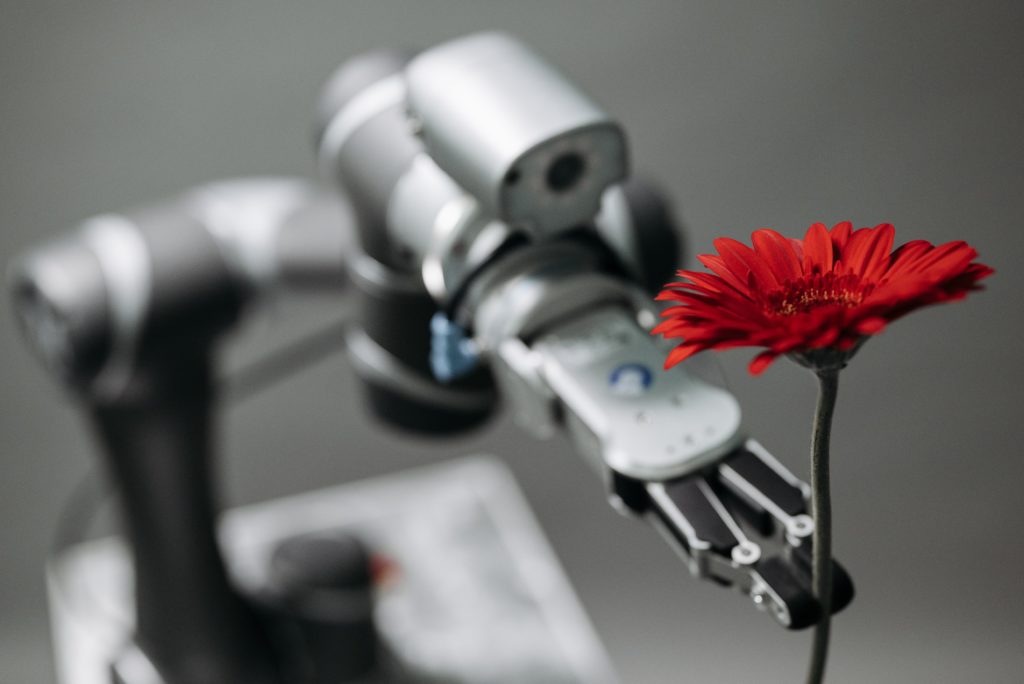
The rise of robotic companions to address social isolation
For all adults, loneliness and social isolation pose significant risks to good health, potentially leading to problems including heart disease, anxiety, depression, Alzheimer’s disease, and more; though, this risk is even more concerning for older adults. Older adults are more likely to experience loss, live alone, or face health issues that leave them isolated at home. According to the National Academies of Sciences, Engineering, and Medicine, one in four adults aged 65 and above is considered to be socially isolated.
Advancements in technology have increased our awareness of how social isolation and loneliness affect well-being, prompting new products and inventions to help combat these issues. Some companies are developing “robotic companions” that are designed to offer companionship to seniors living alone.
ElliQ
Artificial intelligence has experienced a recent spike in popularity and could be the answer to this crisis. The Israeli company, Intuition Robots, aims to empower older adults’ independence through the debut of a robot companion, called ElliQ. This innovative companion offers a way to increase the mental and physical activity of seniors, while allowing them to continue living independently.
ElliQ is a smart speaker with a moving head that is programmed to face the person speaking and light up when talking. Using artificial intelligence, ElliQ can engage in small talk and even has a unique and compassionate personality. ElliQ’s interactions are natural and mimic holding conversations with real people. The user can make jokes, play trivia and other games, listen to audiobooks, and discover new music through ElliQ. The device can also give virtual world tours, explore cultures, and provide information about other countries. Plus, ElliQ can provide health tips and schedule reminders for medication, appointments and more.
Furthermore, ElliQ allows for easy communication with family members through video calls, messages and even greeting cards. This could be especially useful for those who live far from family. Over time, some seniors find that they have built a relationship with ElliQ, thinking of it as a friend.
Robotic companion animals
Pets have been shown to provide health benefits to seniors, especially those living alone or in group facilities. Companion animals, such as dogs, cats and birds, can help reduce stress, lower blood pressure, and increase social interaction for their owners. In an environment where patients are the ones being taken care of, robotic companion animals can provide an avenue for expressing love, compassion and care for something else. These animals provide comfort and can bring back fond memories of older pets.
In 2015, Ageless Innovations, a spin-off company that was previously part of Hasbro, introduced the “Joy for All” brand of robotic companion pets to combat social isolation, loneliness, and cognitive decline. These lifelike animals portray real characteristics of dogs and cats, such as authentic sounds, realistic fur, responses to touch, and even a heartbeat. These animals allow older adults to experience the joys of pet ownership without the responsibilities and concerns that come with real pets, and “Joy for All” pets can live anywhere, which is not always possible with a live animal.
Senior services from around the country are providing hundreds of Joy for All animals to older adults to combat loneliness. The company offers two dog types, freckled and golden, for about $140, and three cat options – silver, tuxedo and orange tabby – for about $125. These furry friends are much less expensive than a real pet, and are simpler to care for, making them an ideal gift for older adults.
Social robots at CSU
Within the realm of social robotics, Colorado State University is also involved in the development of robots that interact with humans. Tony Maciejewski, a professor of electrical and computer engineering, is working to develop social robots that could be used to improve pedestrian flow in crowded situations. Research and development of technology such as this could advance the connection between humans and AI, paving the way for even more lifelike companions to help address socialization issues.
In the pedestrian flow study, robots were used to determine the most effective placement to improve flow through crowded areas: in this case, a large group of people moving through two separate doors. Objects in the simulation exerted forces on one another, mirroring how humans would interact with robots. Some robots attracted people, pushing the crowd through doors and aiding in the flow of foot traffic, while other robots repelled them to prevent overcrowding. The study illustrates that robots can be designed to react to people, offering insights to improve human-robot relationships.
Robotic companions, like ElliQ and the Joy for All pets, are just the start of a new wave of technology designed to offer companionship and alleviate social isolation and loneliness. These innovative solutions are particularly beneficial for older adults and provide accessible and cost-effective means to stay socially, mentally and physically active. Amidst all of today’s technological innovations, social robots could serve as an additional resource to enhance well-being and overall quality of life.
ABOUT THE AUTHOR
Brooke Zarecki is a senior at CSU studying biomedical sciences with a minor in Spanish. She is currently a student ambassador for Columbine Health Systems Center for Healthy Aging.





